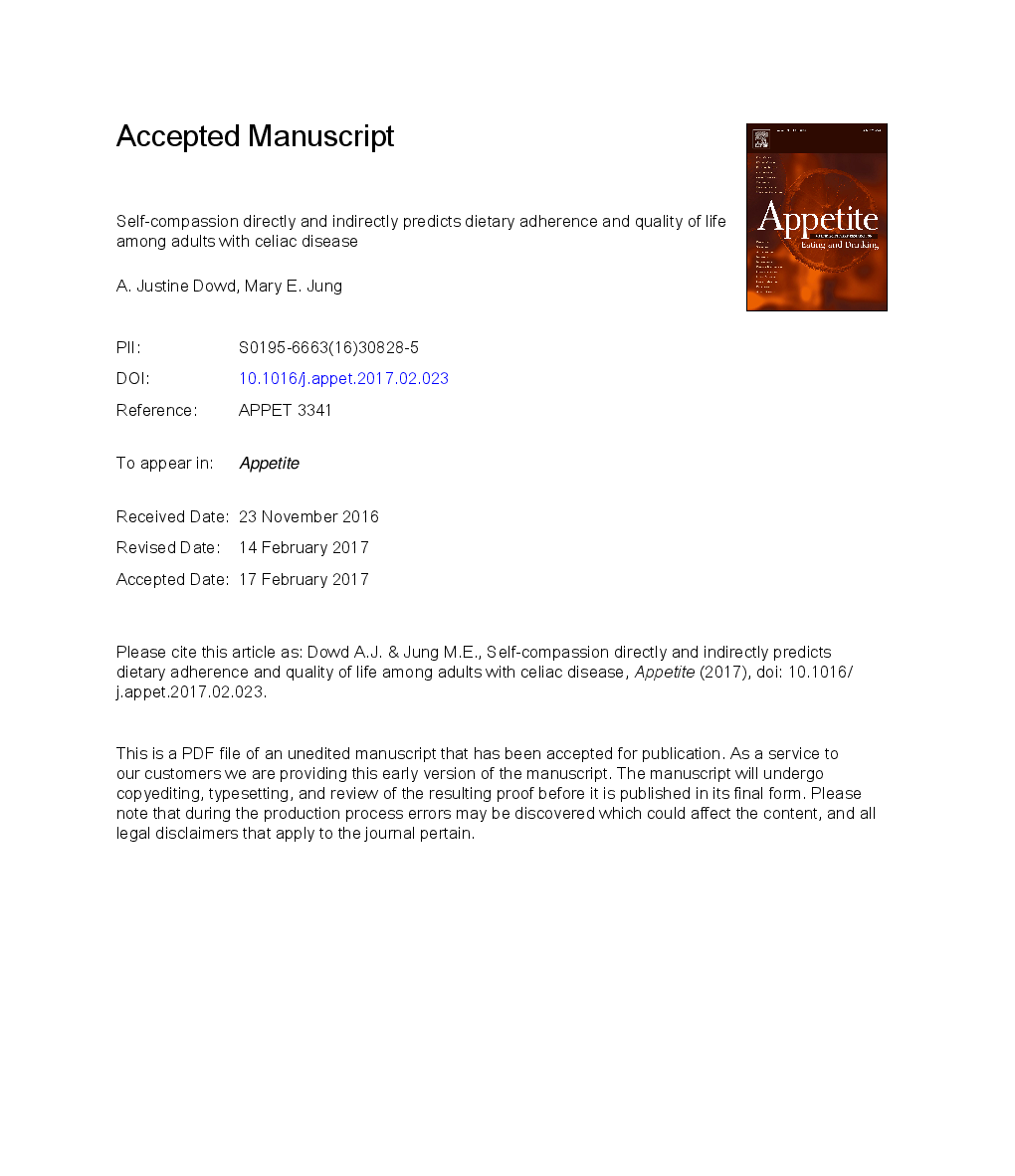ترجمه فارسی عنوان مقاله
خودخواهی مستقیما و غیر مستقیم پیش بینی رعایت رژیم غذایی و کیفیت زندگی در بزرگسالان مبتلا به بیماری سلیاک است
عنوان انگلیسی
Self-compassion directly and indirectly predicts dietary adherence and quality of life among adults with celiac disease
| کد مقاله | سال انتشار | تعداد صفحات مقاله انگلیسی |
|---|---|---|
| 132886 | 2017 | 33 صفحه PDF |
منبع

Publisher : Elsevier - Science Direct (الزویر - ساینس دایرکت)
Journal : Appetite, Volume 113, 1 June 2017, Pages 293-300
ترجمه کلمات کلیدی
بیماری سلیاک، رفتار ضمانت، کیفیت زندگی، رژیم غذایی فاقد گلوتن، خودخواهی، خود تنظیم
کلمات کلیدی انگلیسی
Celiac disease; Adherence behavior; Quality of life; Gluten-free diet; Self-compassion; Self-regulation;

